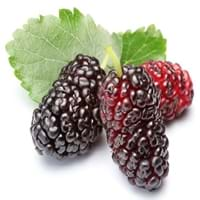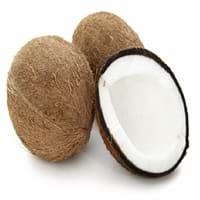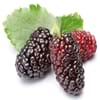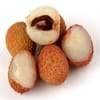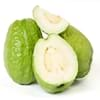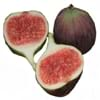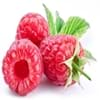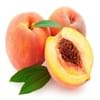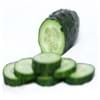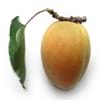Health Benefits
Anti-aging benefits, Boosts immune system, Cancer prevention, Flu treatment, Hair care, Heart care, Improves eye vision, Increases metabolic rate, Kidney stone treatment, Maintains healthy cholesterol level, Skin cleansing, Skin rejuvenation, Treatment of common cold, Treatment of skin Diseases
Acidity treatment, Acts as natural antibiotic, Anti-oxidant properties, Aphonia treatment
General Benefits
Boosts immune system, Controls blood sugar levels, Flu treatment, Improves eye vision, Maintains healthy cholesterol level, Treatment of common cold
Anti-inflammatory properties, Body hydration, Boosts immune system, Controls blood sugar levels, Digestive aid, Fights against infections, Flu treatment, Healing of wounds, Helps in weight loss, Maintains healthy cholesterol level
Skin Benefits
Anti-aging benefits, Skin cleansing, Treatment of skin diseases
Anti-aging benefits, Heals sunburn, Hydrates skin, Reduces wrinkles, Skin rejuvenation, Skin revitalization, Treatment of skin diseases
Hair Benefits
Protects hair, Regulates hair growth
Promotes longer and healthier hair, Regulates hair growth, Rejuvenates scalp, Shiny hair, Treatment of dandruff
Allergy Symptoms
Breathing difficulty, Itching, Nasal congestion, Redness of eyes, Runny nose, Sneezing
Abdominal pains, Breathing difficulty, Itching in tongue and other parts of mouth, Nasal congestion, Nausea, Runny nose, Vomiting
Side Effects
Decrease in blood sugar levels, Allergic reaction
Allergic reaction, Indigestion, Weight gain
Best Time to Eat
Best if taken as a breakfast (or empty stomach), As a snack in the late afternoon, Don't consume at night and before bed, Eat the fresh ones, avoid mixing with any other foods, don't eat after meal., Morning time (before lunch)
Along with meal, Best if taken as a breakfast (or empty stomach), As a snack in the late afternoon, Morning time (before lunch)
Vitamin B5 (Pantothenic Acid)
Not Available
Vitamin C (Ascorbic Acid)
Vitamin K (Phyllochinone)
Phytosterol
Not Available
Calories in Fresh Fruit with Peel
Not Available
Calories in Fresh Fruit without Peel
Not Available
Calories in Frozen Form
Not Available
Calories in Canned Form
Not Available
Type
Berry
Tree fruit, Tropical
Season
Spring, Summer
All seasons
Varieties
Charparral, Pendula, Teas, Bellaire and Lingan
Tall Varieties- West Coast Tall, Laccadiv Micro, Andaman Ordinary, Fiji, Kappadam, San Ramon, Philippines, Spicate, and Pratap. Dwarf Varieties- Chowghat Orange Dwarf (COD) and Chowghat Green Dwarf (CGD)
Color
Pink, Purple, White
Brown, Green
Taste
Tart
Juicy, Sweetish
Origin
China
America, India
Soil Type
Clay, Loam
Clay, Sand
Climatic Conditions
Sunny
Hot, Humid
Facts about
- It can take up to 10 years for a tree to produce mulberry fruit.
- Mulberry leaves are fed to silkworms to enhance silk production.
- In Germany, they say that devil uses root of mulberry tree to polish his boots.
- Burning coconut's husk helps repel mosquitoes.
- Surveys say that falling coconut kills hundreds every year.
- Coconut water is used as a substitute Blood Plasma & is called "father of modern tissue culture science".
Top Producer
China
Indonesia
Other Countries
Colombia, Egypt, India, Indonesia, Kenya, Mexico, Pakistan, Peru, Russia, United States of America
Brazil, India, Philippines, Sri Lanka
Top Importer
Not Available
United States of America
Top Exporter
China
Philippines
Botanical Name
Morus Alba
Cocos nucifera
Synonym
Morus atropurpurea or Morus multicaulis
Not Available
Subkingdom
Tracheobionta
Tracheobionta
Division
Magnoliophyta
Magnoliophyta
Class
Magnoliopsida
Liliopsida
Subclass
Alismidae
Arecidae
Family
Moraceae
Arecaceae
Species
M. alba
C. nucifera
Generic Group
Mulberry
Arecaceae
Compare Mulberry and Coconut
It is important compare Mulberry and Coconut as both the fruits have a different nutritional value. Their comparison can be done on the basis of their vitamin and mineral content, calories, benefits as well as characteristics, making it easier for us to choose the best fruit for our diet. Their general health benefits are as follows:
Mulberry Benefits: boosts immune system, controls blood sugar levels, flu treatment, improves eye vision, maintains healthy cholesterol level and treatment of common cold.
Coconut Benefits: anti-inflammatory properties, body hydration, boosts immune system, controls blood sugar levels, digestive aid, fights against infections, flu treatment, healing of wounds, helps in weight loss and maintains healthy cholesterol level.
Fruits are also used as a remedy for various hair problems. The hair benefits of Mulberry are: protects hair and regulates hair growth and hair benefits of Coconut are: promotes longer and healthier hair, regulates hair growth, rejuvenates scalp, shiny hair and treatment of dandruff. Some fruits are known to cause allergic reactions. The allergy symptoms of first fruit are: breathing difficulty, itching, nasal congestion, redness of eyes, runny nose and sneezing and the symptoms of second fruit are: abdominal pains, breathing difficulty, itching in tongue and other parts of mouth, nasal congestion, nausea, runny nose and vomiting. Get sorted Mulberry vs Coconut comparison with the help of fruit comparison tool by fruitvs.com.
